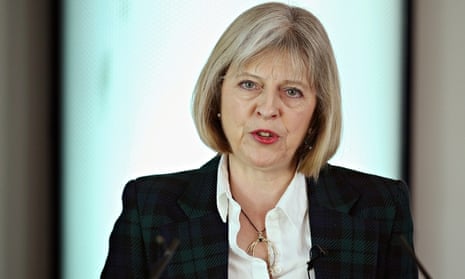“It won’t be me,” I hear you say. And, of course, I accept you are not a criminal, after all. The worst you do online is post stupid comments when you are drunk and masturbate to porn when you think no one is watching. When the government says it wants to take away the passports of wannabe jihadis, why should you care? I don’t. Islamic State marks the bloody end of Britain’s version of identity politics. With more British Muslims fighting for Isis than serving in the British army, the least we can do is make amends to a bleeding world by stopping radical Islamists leaving to murder, enslave and rape. In any case, you and I are not going to Syria, are we?
I doubt the state’s ban on hate preachers visiting universities will alarm you either. Students and college administrators have banned just about everyone with controversial opinions. The London School of Economics and the University of West London have even harassed and barred secularists, who wanted to expose the theocrats proselytising against women, Jews and gays on campuses. Some of us warned the universities that if they did not defend freedom of speech the state would remove their freedom. They didn’t listen and now it has gone. Serves the fools right.
I suspect that Theresa May’s order that internet and mobile phone companies must allow the police to identify who was using a device and when will probably fail to stir you too. Essential clues for 21st-century crime fighters, you could say. Better to help the police catch dangerous men than let them escape justice.
I am not so sure. I am not worried by what the Home Office is doing but by what it wants to do. Nick Clegg has lost count of the number of times he has had to intervene to stop the security establishment crushing basic liberties. The Liberal Democrats blocked the police and intelligence services having access to the web histories of you, me and everyone else. They stopped them inserting “black boxes” to intercept web traffic.
Most importantly to my mind, they blocked May’s astonishingly illiberal “extremism prevention orders”, which would have allowed the state to censor opinion rather than prevent crime by banning speakers who are not inciting violence or breaking the law.
Despite these victories, you should feel uneasy. The Liberal Democrats could be gone within six months. The Tories may have a majority, or Labour may be in power, instead. As the record of the last Labour government suggests that Yvette Cooper will make Theresa May look like the leader of the Brownie pack, the odds are that all the authoritarian measures Clegg and his colleagues blocked will return.
The Home Office never forgets a bad idea; never gives up. After Clegg blocked extremism prevention orders, the government’s extremism task force met. Lib Dem ministers noticed that officials had put the orders right back on the forthcoming business agenda.
One way or another, it wants police surveillance of everyone’s web and mobile records and the banning of unpleasant opinions. If that doesn’t bother you, then you are a fool too.
Friends who helped break the Snowden revelations are close to despair. The British, who survived the First and Second World Wars, the cold war and IRA bombs appear willing to tear up their civil liberties because of Islamist murderers. The electorate greeted the Guardian’s exposé of mass surveillance with indifference. Neither Labour nor the Tories feels public pressure to reform the secret state.
The standard reply to the public’s belief that “if you’ve nothing to hide you’ve nothing to fear” is to ask: “So you don’t draw your curtains then?” It is good as far as it goes, but a better warning against unconstrained police surveillance comes from our experience online. Malice and mobbish rage drive the Twitter storms that break more often than the autumn rains. A leftwing cookery writer uses David Cameron’s dead son to attack the prime minister. But instead of noting that we have all said vile things in our time, conservatives scream that she is a lesbian and campaign for Sainsbury’s to stop employing her as a celebrity chef. Myleene Klass humiliates Ed Miliband on television. Instead of trying to beat a D-list celeb in argument – and if you can’t do that you should give up on arguing – leftists demand that Littlewoods stop using her as a model and selling her range of designer dresses.
The same people who scream “censorship” and “persecution” when one of their own is targeted lead the slobbering pack when the chance comes to censor and persecute their enemies. They want them fined, punished and sacked, and never pause for a moment to consider their dizzying double standards or reflect that the weapons they use against others will one day be turned on them.
Nearly every adult and many a bullied and mocked schoolchild has already changed their behaviour for fear of online spies, and not only because of the venom on Twitter. Employers examine Facebook pages before they hire staff. A politically incorrect post can lead to your sacking or demotion. Online anonymity always strikes me as cowardice until I reflect that millions of people are so frightened of capricious employers they dare not speak freely under their own name.
Give it the chance and the authoritarian political class will ape the authoritarian managerial elite and be just as malicious as the Twitter heresy hunters.
The Dorset council that used surveillance powers designed to catch gangsters to spy on a mother who was trying to get her child into a decent school is a symbol of our times. However outrageous and ham-fisted its behaviour was, the authorities could say that parents are breaking the rules if they game the school system. The police will make the same argument once they have the freedom to roam the web. They will say they have a duty to collect evidence of any crime, however minor. They will do it because they can.
The most telling omission from the government’s push towards a surveillance state is the absence of safeguards. The Lib Dems have forced it to establish the Independent Privacy and Civil Liberties Board to act as a counterweight to the overwhelming authoritarian advice coming from the Home Office. But that will go when the Lib Dems leave power and then, well, you will need a childlike trust in our leaders to sustain you.
“It won’t be me,” I hear you say. But if you tweet anonymously, or cower before online bullies, or watch what you write for fear of your employers, you must know that it already is.

